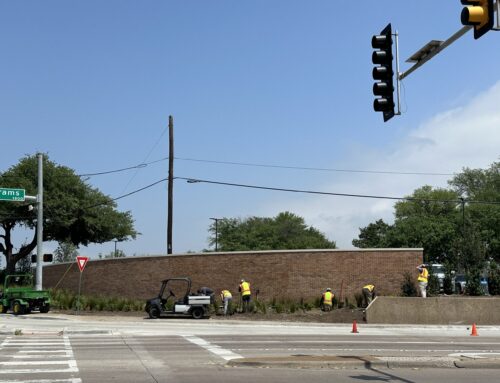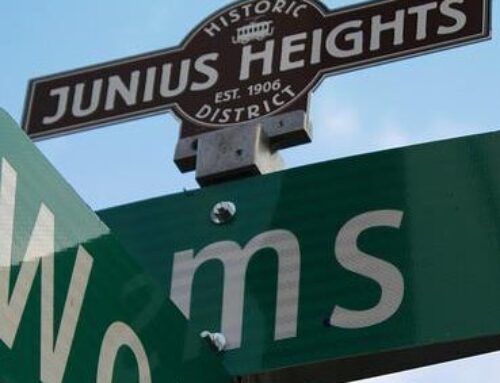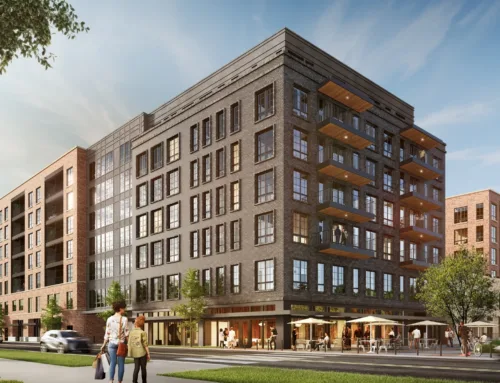 In East Dallas, the term “suburban” often evokes a landscape littered with big-box stores and McMansions, a lifestyle defined by homogeneity and inauthenticity. We use the word as a pejorative to distinguish and elevate our far superior way of life here in the center of the city — a life that is urbane and diverse and real, steeped in history and quirkiness.
In East Dallas, the term “suburban” often evokes a landscape littered with big-box stores and McMansions, a lifestyle defined by homogeneity and inauthenticity. We use the word as a pejorative to distinguish and elevate our far superior way of life here in the center of the city — a life that is urbane and diverse and real, steeped in history and quirkiness.
I’m not particularly proud of my prejudice in this regard, and I’m quite sure it says more about me than about Allen or McKinney. Different strokes for different folks, and all that. The fact is, we can learn a great deal from our friends to the north, particularly when it comes to protecting our residents’ quality of life.
Not long ago, I found myself driving along Preston Road in Frisco, close to the Oklahoma border (I kid, I kid! But seriously, how far north does Preston go?). Something was missing, and it wasn’t hipsters. It was signage. There were no towering pole signs for McDonald’s and CVS littering the roadway. Instead, low-to-the-ground monument signs advertised the stores abutting the street. The difference in the character of the street was profound: with much of the visual clutter eliminated, the tree-lined street became more attractive, more inviting and more human-scale.
I am sure that if Dallas attempted similar sign regulations, the tiny violins would come out. Certain developers would protest that they could not possibly build to such stringent standards and still eke out a profit. They’d argue that retailers would refuse to lease from them if they couldn’t put up signs that touched the sky. Yet somehow, these same developers gladly accept suburban restrictions. Their suburban properties are occupied and, by all indications, doing quite well.
But when developers pull their sky-is-falling act here, Dallas too often caves. The proposed Sam’s Club in East Village near City Place is an example of a failure of courage. A big-box store on the edge of Uptown clashes with the city’s stated goal of making central Dallas more dense and walkable. Yet city staff supported the project and claimed it was in line with the city’s urban design standards. Not quite.
I suspect city staff’s response was built upon desperation: Dallas has to accept any deal a developer throws our way, because otherwise the city might lose out. The developer likely warned staff that without the big-box anchor, there could be no project at all, no multimillion-dollar addition to the city’s tax base.
I heard this tale of woe frequently while I was on the city council. When requesting a zoning change, certain developers would lament: “But Angela, the deal just doesn’t pencil with all these improvements that are being demanded. It just can’t be done.” At that point, I’d show them to the door. Suddenly, they’d get out their erasers, and miraculously, the deal would “pencil” —improvements and all.
Developers are smart, tough negotiators, but their dire warnings are nearly always empty threats, as proven by their compliance with suburban regulations. In reality, it’s just easier to plop down a standard big-box store with a sea of parking than to spend time designing a unique project that takes into account its urban context.
Staff is correct on one point, though: If developers are forced to comply with thoughtful building, zoning and design standards that improve the quality of life in our city, we are going to lose out on some projects. But the projects we’d lose out on would do little to enhance our city. So why should we care?
The most livable cities around the world demand top-quality development projects that align with the city’s vision and values, and improve the built environment for residents. People — and businesses — flock to places like Vancouver and Portland not despite their stringent design regulations, but because of them. Those cities, like our suburban neighbors, have figured out the power of the word “no.” They have called the developers’ bluff and told them if they don’t like the rules, they can take their toys and build elsewhere. Dallas should have the courage to do the same.





